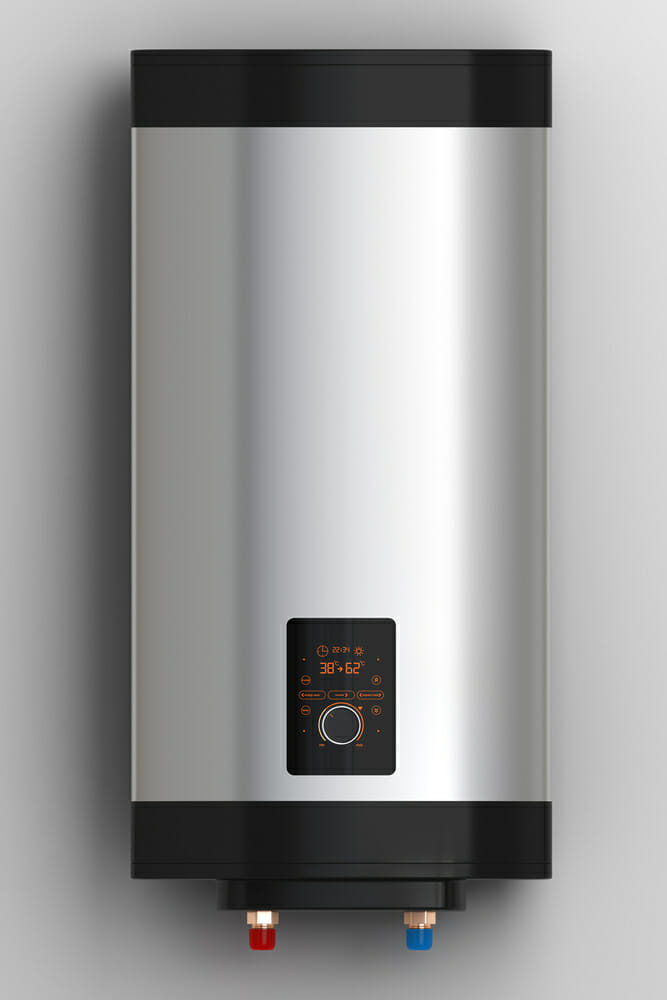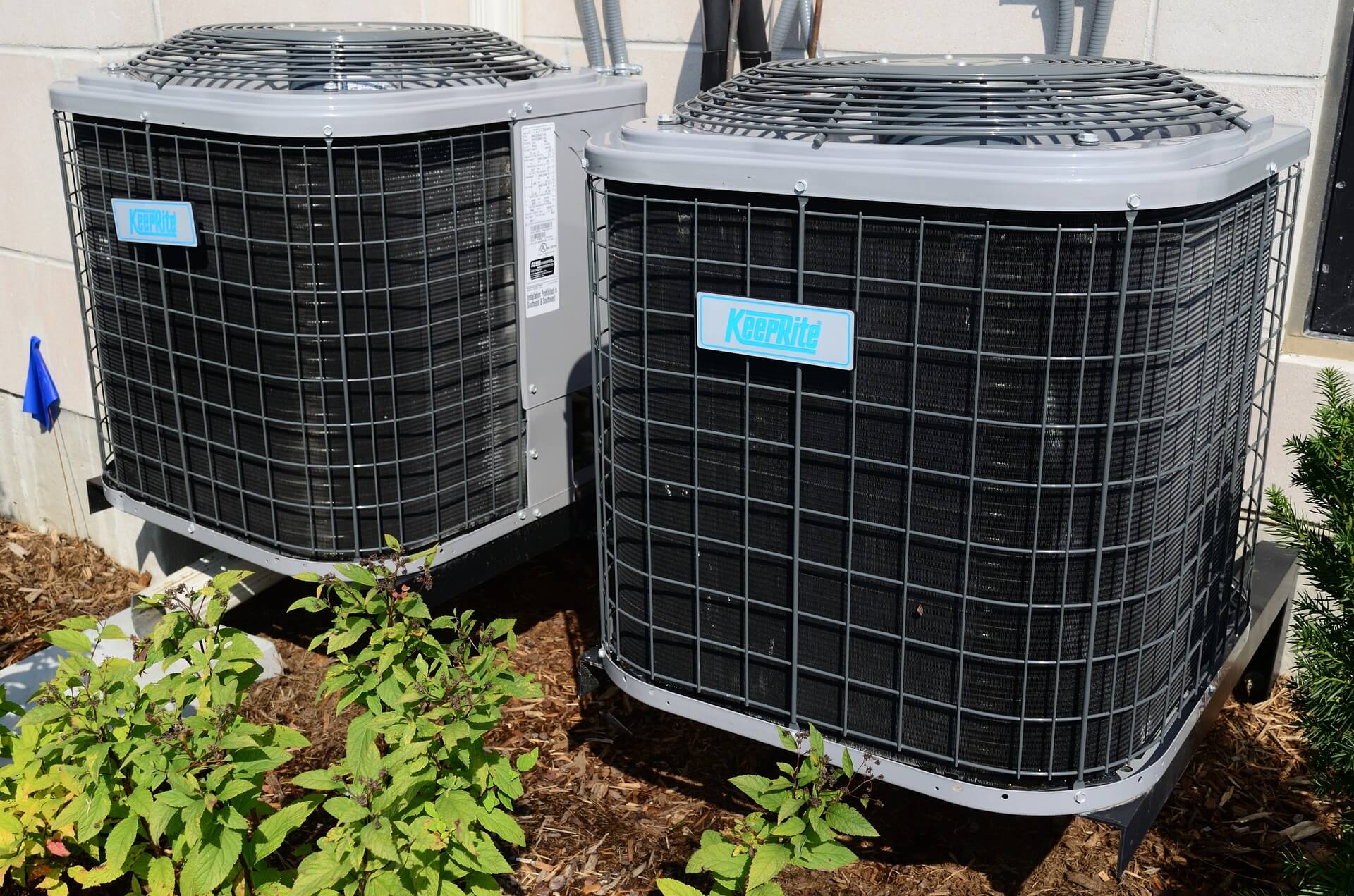Are you doing an HVAC project?
Modernize can pair you with three to four pros in your area, so you can compare options and save time and money.
Electricity is increasingly powering American homes, with a quarter now fully electric, particularly in the South and Midwest. Here, where power costs are between $.15 to $.19 per kilowatt-hour, homeowners often question the electric boilers cost to run. They’re weighing how electric boilers stack up against gas ones in terms of efficiency.
Modernize’s guide helps make sense of it all. It breaks down the electricity usage of electric boilers, offers a look at combi models, and compares them to gas boilers. The aim is to give homeowners a clear picture of the energy use and costs involved with electric boilers.

What Are Electric Boilers?
Boilers are used to heat homes and businesses across the U.S., though they aren’t as common as gas-fired furnaces for residential use. However, boilers can be a good choice to heat home additions and smaller homes, especially in areas where energy costs are lower.
Is an Electric Boiler Different Than a Furnace?
Boilers work differently than furnaces.
The latter burns propane or natural gas to produce heat, which is passed through a heat exchanger before being distributed throughout the home’s ductwork.
Boilers use electricity, gas or oil to heat water and generate steam, which is distributed through radiant floor systems or baseboard radiators.
When Should a Home Use an Electric Boiler?
Electric boilers are common in homes that don’t have hookups for natural gas or liquid propane. Instead of burning a fuel, electric boilers use heating elements to heat water to either 140 to 180 degrees Fahrenheit, or past the boiling point to generate steam.
This makes them “greener” than other forms of boilers. However, they are also generally less efficient since electricity costs typically run higher than gas or propane.
Hot water electric boilers can be slightly more efficient than steam boilers. Steam boilers require additional electricity use to heat water past its boiling point. Still, upgrading an older boiler or outdated furnace system to a new energy-efficient steam or hot water boiler can save money on home heating costs.
How Much Electricity Does an Electric Boiler Use?
Several factors influence total electric boiler energy use. Desired room temperature, size of your home, regional energy costs, and how many kilowatts your electric boiler consumes per hour all come into play.
On average, electric boilers use about 10 kilowatt hours of electricity per hour when running. If the boiler is running 10 hours a day to heat your home, that’s 100 kWh per day, or 3,000 kWh per month.
How Much Does an Electric Boiler Cost To Run?
How much using an electric boiler costs depends on where you live.
Find the Right Contractor for Your HVAC Project
Whether you’re ready to begin your project now or need some expert advice, our network of contractors are here to help. With a few simple questions, we’ll find the best local professionals for you
In Alaska, the average retail price for electricity use is about $.20 per kilowatt hour. Your boiler would use approximately $2 of energy per day running at 10 hours, which equals $60 per month.
In Montana, where energy costs are about $.11 per kWh, an electric boiler would cost $1.10 per day, or $33 per month.
Gas Versus Electric Boilers: Costs and Benefits
So are gas boilers more efficient to run than electric boilers? The answer is a bit more complicated than the question.
Gas boilers tend to be cheaper to operate because natural gas and propane are less expensive than electricity. However, electric boilers generally cost less to purchase and install.
A few other things to keep in mind about electric boilers:
- They don’t require any gas hookups, so they are perfect for outbuildings and remote properties.
- They don’t have a combustion chamber, so they are usually smaller than fuel-fired boilers.
- You don’t need to have a flue or piping to eliminate carbon monoxide left over from combustion, which simplifies installation. You can place electric boilers almost anywhere within your residence.
- They have no moving parts, so they require minimal maintenance.
Here’s a rough rule of thumb: use gas or propane-fired boilers to heat medium to large spaces, since the boiler will be running more often. Opt for electric boilers to heat smaller homes or single room additions since those spaces have lower heat requirements.
Heat-Only vs. Combi Electric Boilers
Conventional heat-only boilers use a cold water tank and hot water cylinder to store water. Combi boilers, meanwhile, send hot and cold water throughout the home without any storage tanks. Heat exchangers are connected to both the home’s radiators or radiant heat system and its hot water supply.
The heat-only boilers are always on standby and turn on whenever there’s a request for heat or hot water.
A combi system cannot provide hot water and heating simultaneously.
Are Electric Boilers a Greener Alternative to Heat Pumps?
Heat pumps and electric boilers both can be considered greener alternatives to fuel-fired furnaces. Keep in mind, however, that any appliance that uses electricity pulls its energy from the grid.
In the U.S., the most common ways energy is produced is by firing natural gas, burning coal, or through nuclear power. With that in mind, the “greenest” way to produce energy to fire an electric boiler or heat pump would likely be to use solar.
Heat pumps work by transferring air from either inside or outside your home. In cooling mode, heat pumps work like an air conditioning unit. In heat mode, the physics are reversed. The unit pulls warm air from outside (even when it’s cold) and circulates it throughout your home.
The question of which device is greener and how much heat pumps cost to run really depends on a lot. Consider the climate of your area, energy costs, usage, and heating/cooling requirements of your residence.
Find the Right Contractor for Your HVAC Project
Whether you’re ready to begin your project now or need some expert advice, our network of contractors are here to help. With a few simple questions, we’ll find the best local professionals for you
Reviews from Real Homeowners
Welcome to Homeowner Resources! We are the Modernize blog. Modernize pairs more than 3 million homeowners a year with pre-vetted contractors in their area. This blog started because we believe homeowners should know everything about their homes, from how their HVAC works to which front door colors they might love. On Homeowner Resources, you can find information on every part of your home, right down to how you can negotiate with contractors to get the best price. Here's more about the blog.
Need a contractor? Learn more about how Modernize finds the right pro for you.






